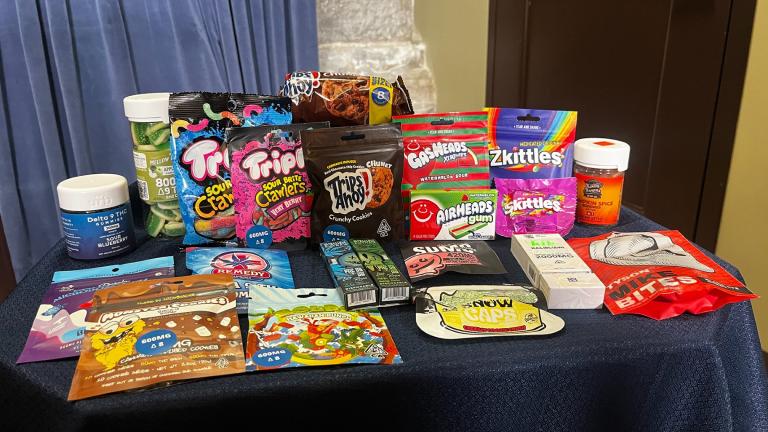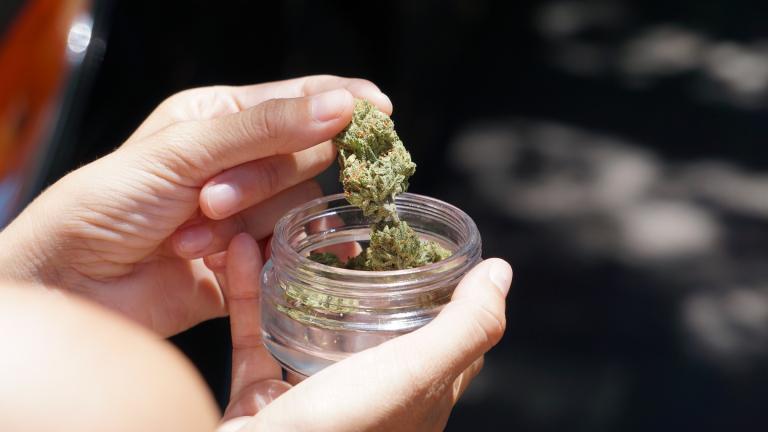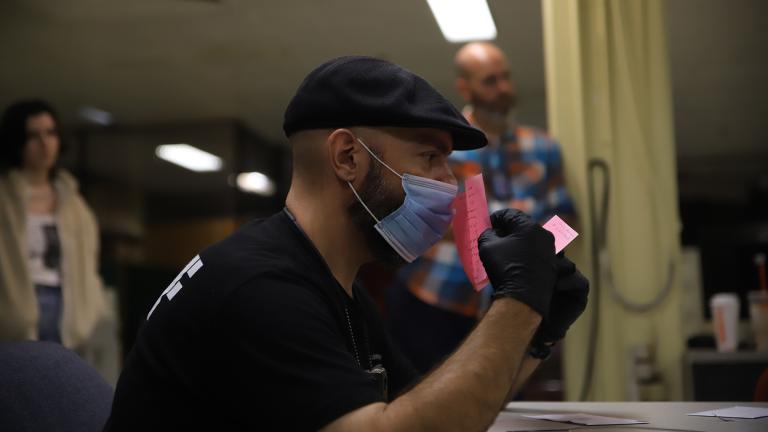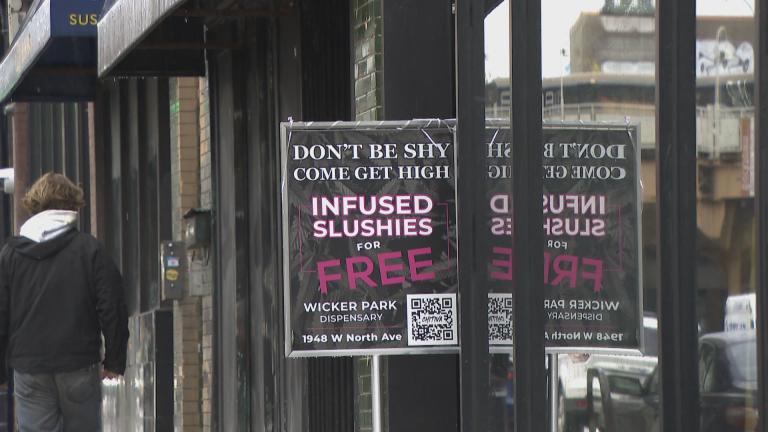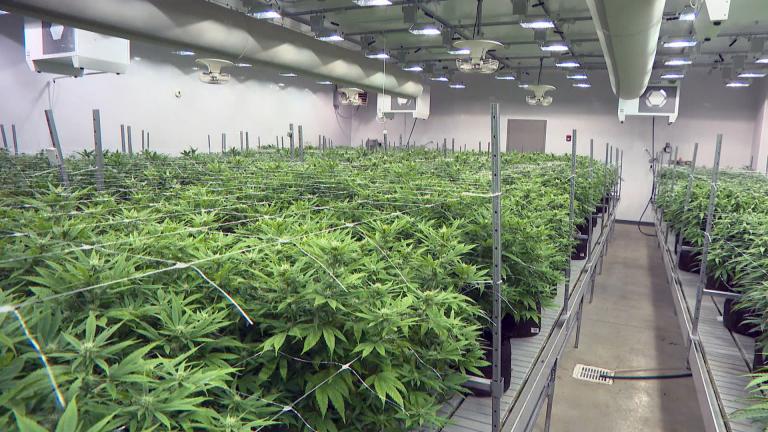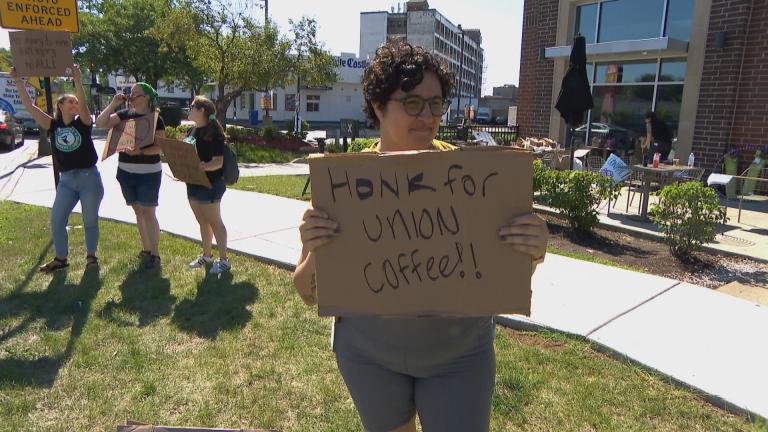Illinois is set to hold a lottery before month’s end, deciding the first winners among the thousands of applicants that long ago submitted bids to open cannabis dispensaries under the 2020 law that made marijuana legal.
A lottery’s set for July 29, with another Aug. 5 and a third Aug. 19; successful applicants will win coveted licenses to collectively open another 185 cannabis dispensaries throughout Illinois.
“As far as I’m concerned, we want to make sure that they go as smoothly as possible, and so we’ve been working every day since this bill was passed really to try to set up the lottery so we get the results that we’re all expecting,” Gov. J.B. Pritzker said.
The bill the Democratic governor was referencing House Bill 1443, which he signed into law Thursday morning, that is intended to fix flaws with the original licensing setup.
Currently the only places that have been legally selling cannabis have been connected to licenses issued years before, when only medical marijuana was permitted. Those profiting from the industry are nearly all white men, despite Pritzker’s pledge that when Illinois legalized marijuana, the state would use the levers under its control to elevate people of color and those who’d been punished, and even sent to prison, when using and selling marijuana was a criminal activity.
Illinois was supposed to have awarded its first social equity dispensary licenses a year ago May.
Instead, lawsuits and criticisms of a flawed application scoring progress have put it on hold.
Those seeking limited state licenses to transport, grow and infuse cannabis have likewise been delayed for a year.
But Thursday, the state department of agriculture announced it is ready to award 213 licenses, 67% of which will go to applicants who are people of color.
CEO of Chicago-based cannabis company 11th Level Inc., Akele Parnell, was among those who learned that his team won a craft grow license.
“I’m super excited. It’s the culmination of months, no years, of hard work at this point. We had a small team, bootstraps, social equity, all that stuff,” he said.
Parnell says to him, social equity means giving people and communities harmed by the war on drugs what they need to flourish.
“That includes balancing any imbalances in access to resource and things that are a result of systemic racism, or inequalities in our economy. And so a social equity is meant to level the playing field and also account for that historical inequity in order to give people what they need in order to compete fairly in the marketplace,” Parnell said.
He said the delay in issuing the licenses worked out, given that it would have been a “nightmare” to have opened during the pandemic.
His team doesn’t have the license yet, but if it goes as expected he expects in five months to have a cultivation facility up and running in Rockford, where he’ll grow a canopy of up to 5,000 square feet of cannabis that can be sold as smokable flower, joints, and infused products.
“That’s sort of like craft beer,” he said. “Do you want craft beer? Or do you want Bud Light or something like that? It’s the same thing with cannabis.”
Edie Moore, who leads the Chicago chapter of the National Organization for the Reform of Marijuana Laws sees movement on licensing, particularly to pot entrepreneurs of color, as a sign that the new law is making the needed changes.
“I believe that this is a fix, but I don’t think that the fixes are going to stop. There’s always going to be somebody who is trying to game the system,” Moore said.
But Deborah Dillon, a former adviser to the Social Equity Empowerment Network and a cannabis researcher at Chicago State University, is wary.
“I think that the majority of people who have participated in this long, drawn-out process, including myself, are going to be pretty disappointed,” she said.
With the lotteries just weeks away, Dillon said she still doesn’t know if her applications for dispensary licenses scored high enough to make it to that stage.
She said the new law, which attempts to move the 75 stalled licenses out of limbo by making 110 additional dispensary licenses available to pools of applicants who meet tighter social equity criteria, is “too little, too late.”
“It may help a handful of social equity applicants who decide to really try to grow a business, have generational wealth. As opposed to those who are going to get the conditional license or maybe pay for the actual license itself, and then sell it,” she said. “That’s my concern. That that’s going to be too real of a temptation for too many people who have waited too long for this to unfold.”
Dillon fears that politics will play a role in who wins the lucrative licenses, and she’s concerned that the lotteries, which will be executed electronically by the state agency that runs the regular lottery, will be held in private.
Moore, meanwhile, said that even if the new law fixes the festering issues with the 2020 legalization statute, there is more work ahead.
“We have to continue to normalize conversations about cannabis so that organizations like ours, or other grassroots organizations who are doing this work mostly for free, mostly on our own time and own dime, so that we are funded to be able to continue the work that we are going,” Moore said. “Step two is to try to help these businesses stand themselves up. So whatever we can do to help the state, to help the municipalities where they want to locate. Whatever we can do to help them get access to capital, access to properties, access to education and staffing … we need to make sure that they are positioned for success.”
The law makes other changes.
Among them, medical marijuana patients, who until now had to register with and limit purchasing cannabis from a single location, are now free to shop at any medical marijuana dispensary.
Follow Amanda Vinicky on Twitter: @AmandaVinicky

